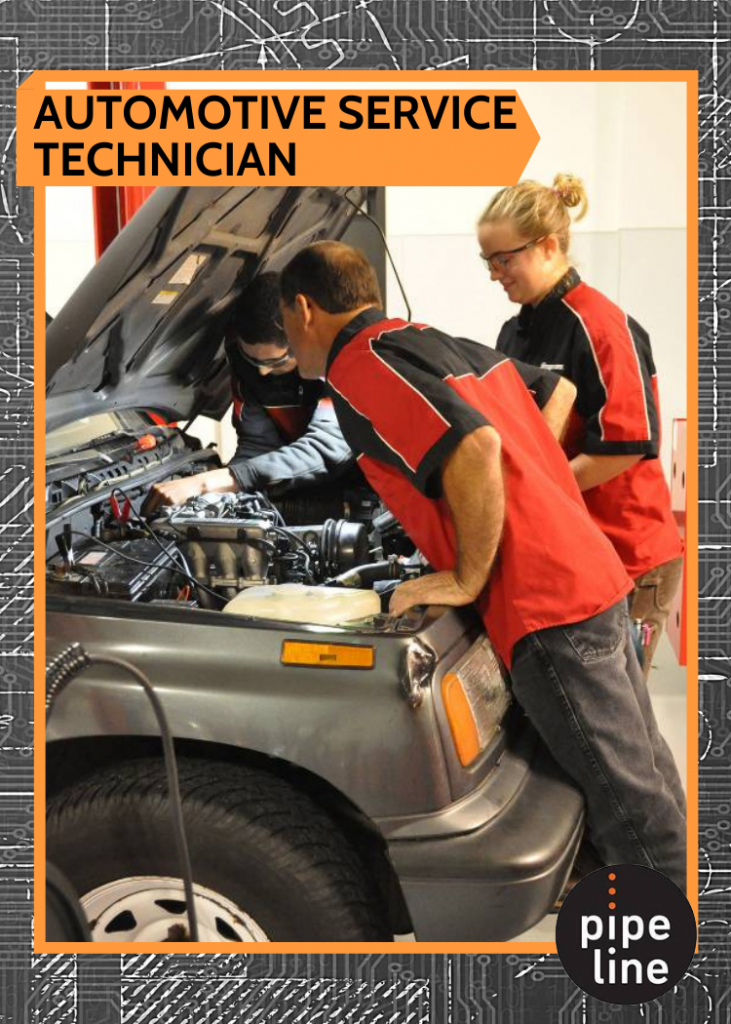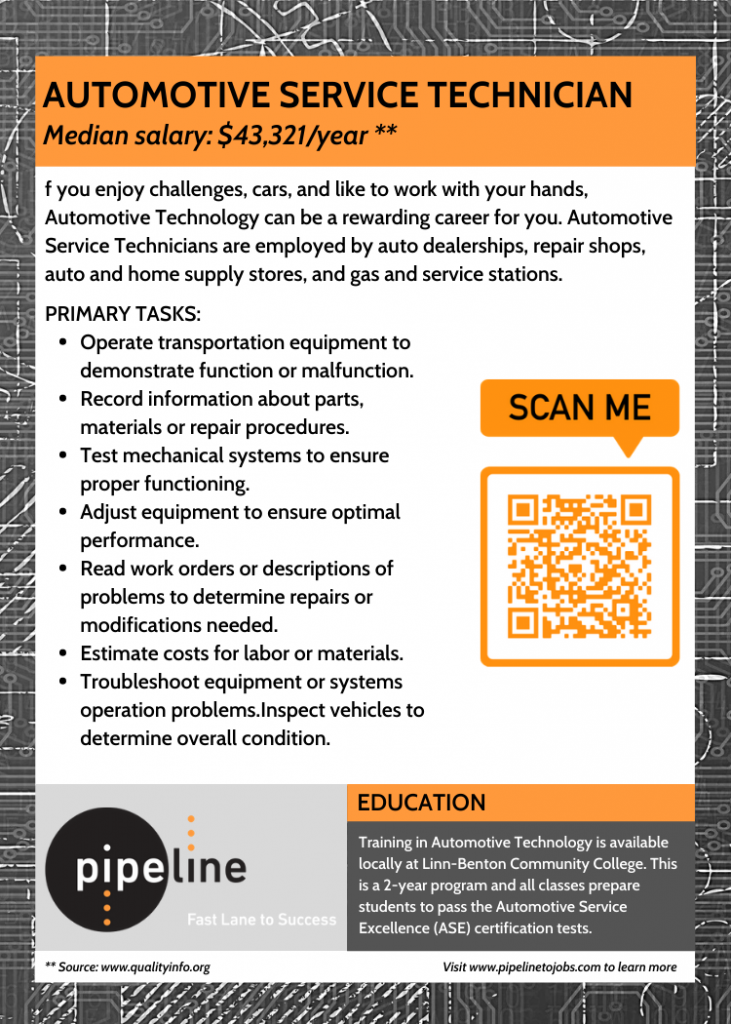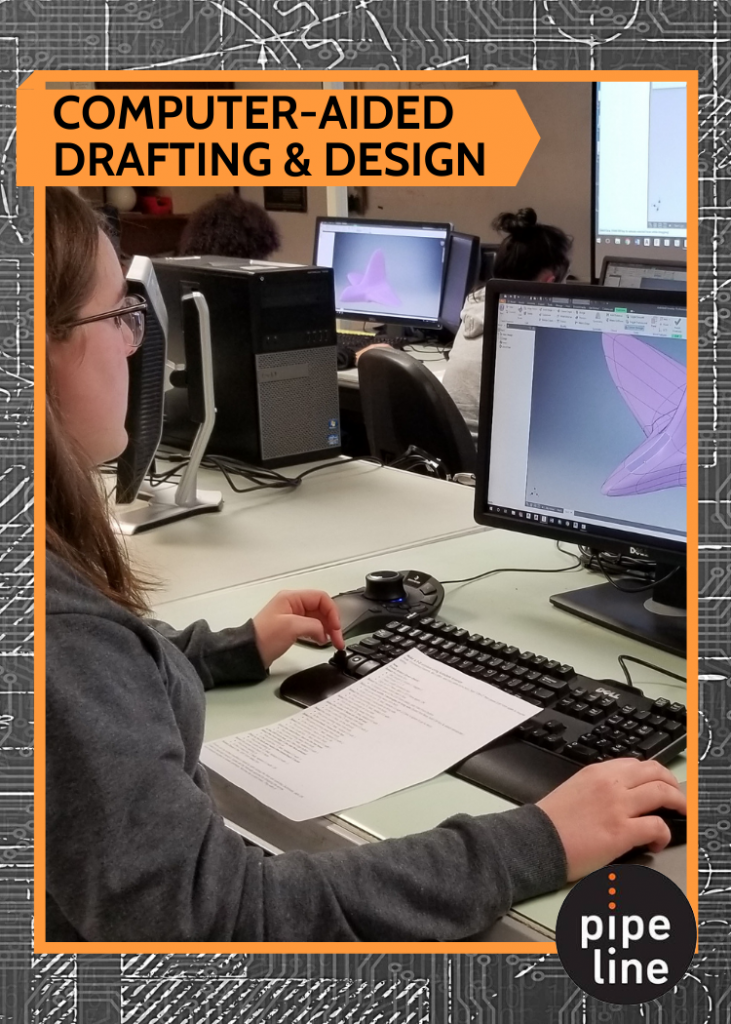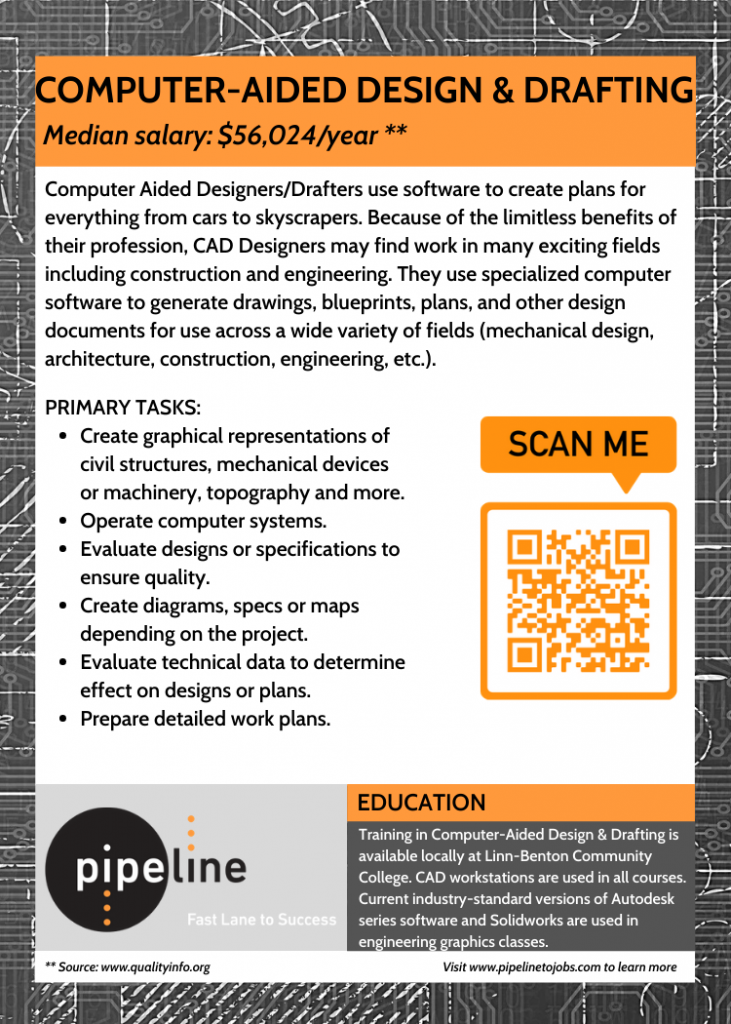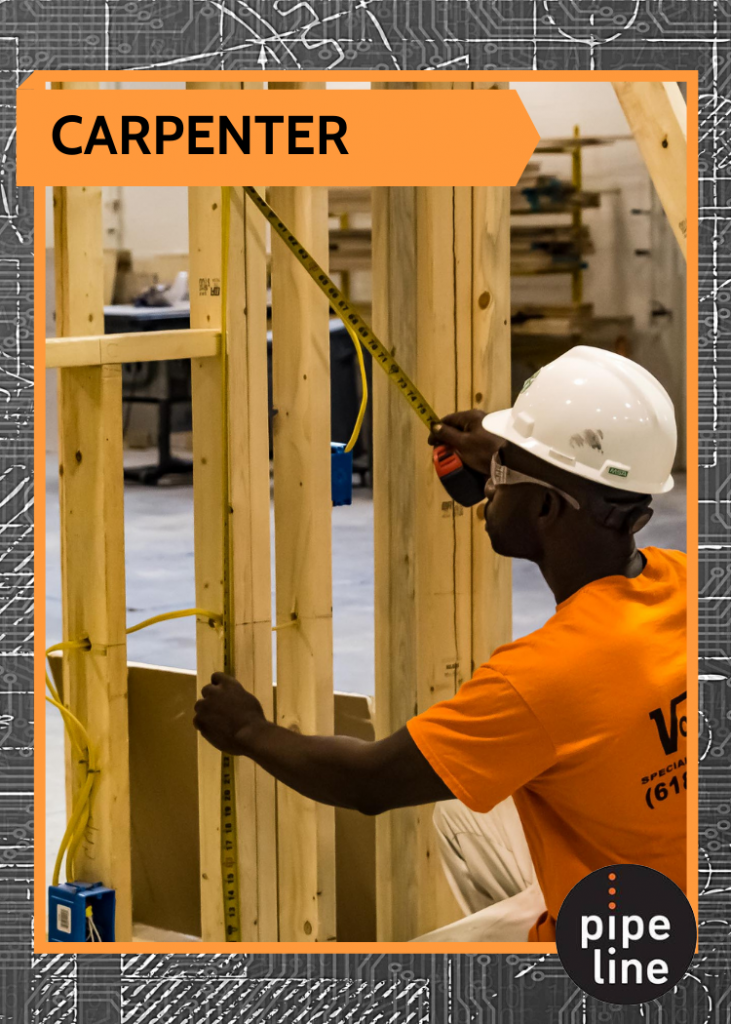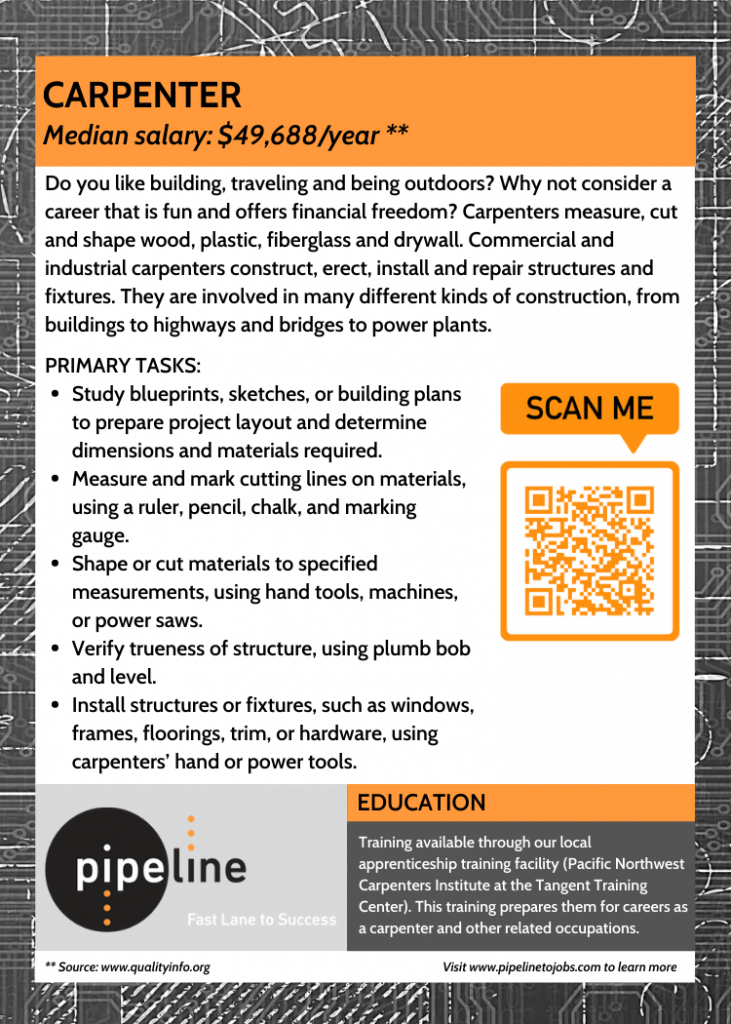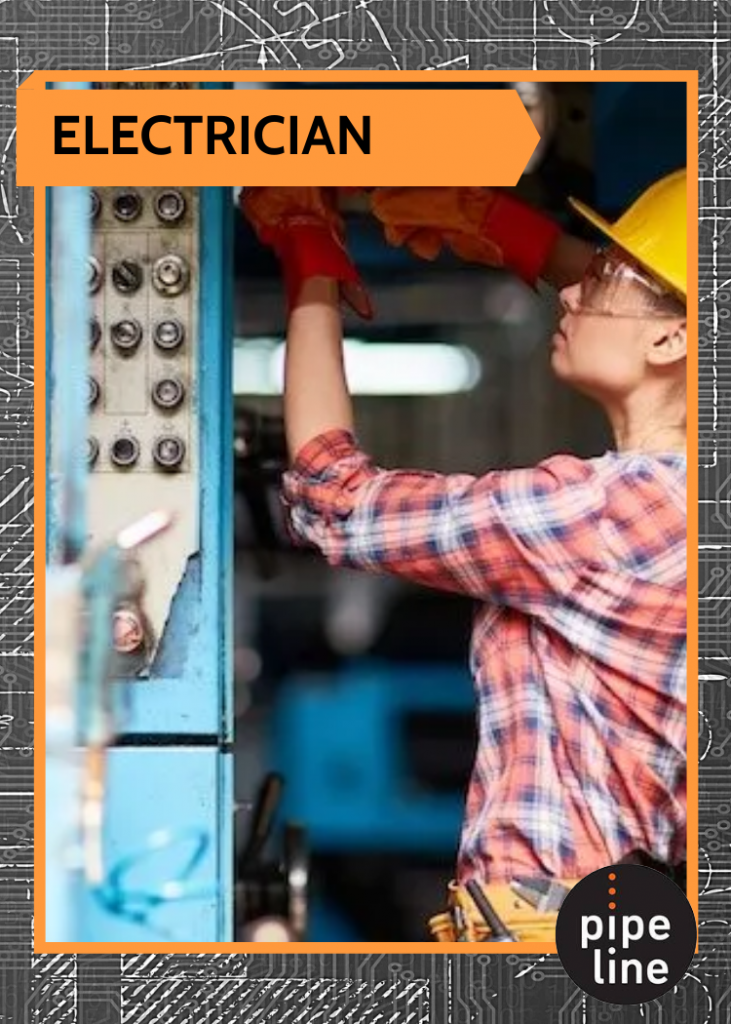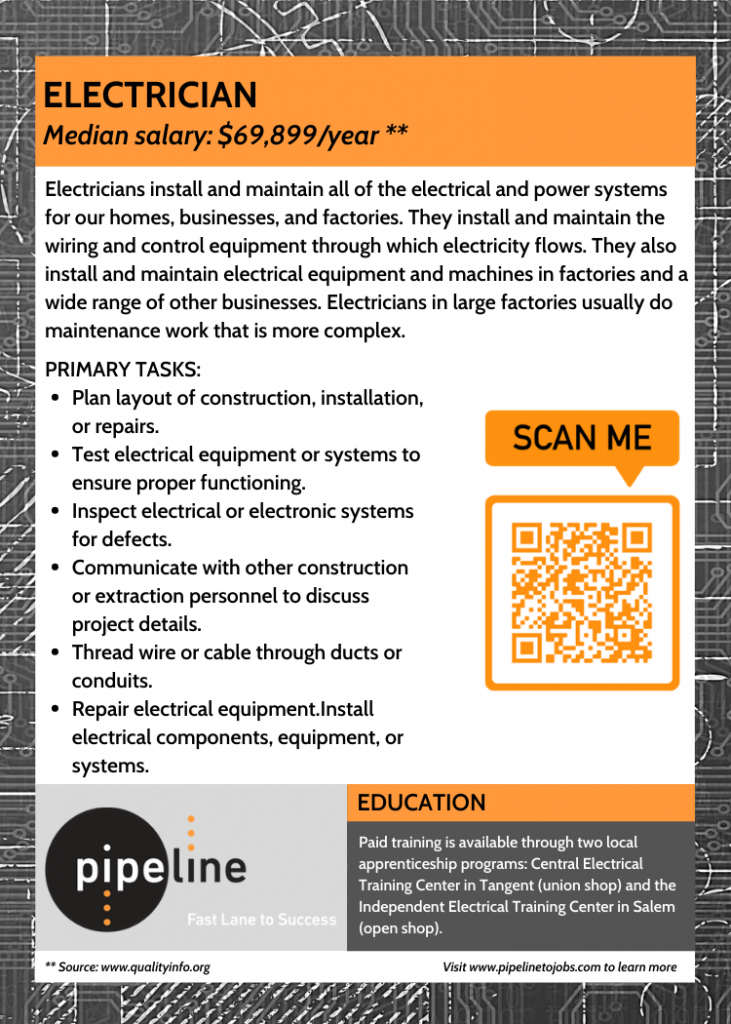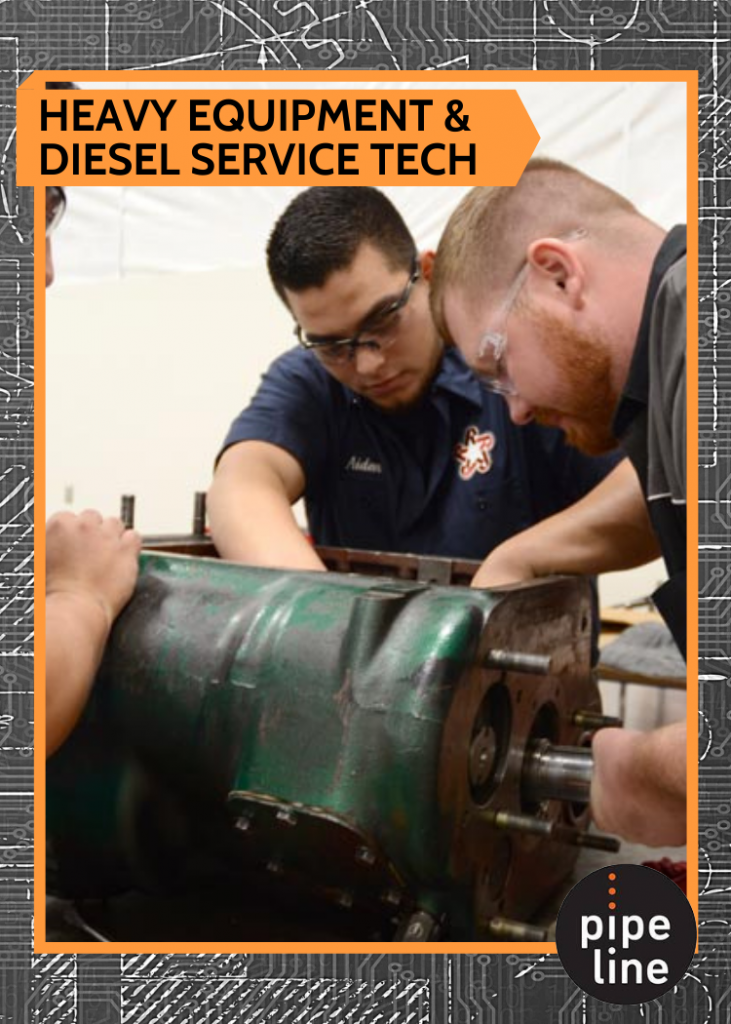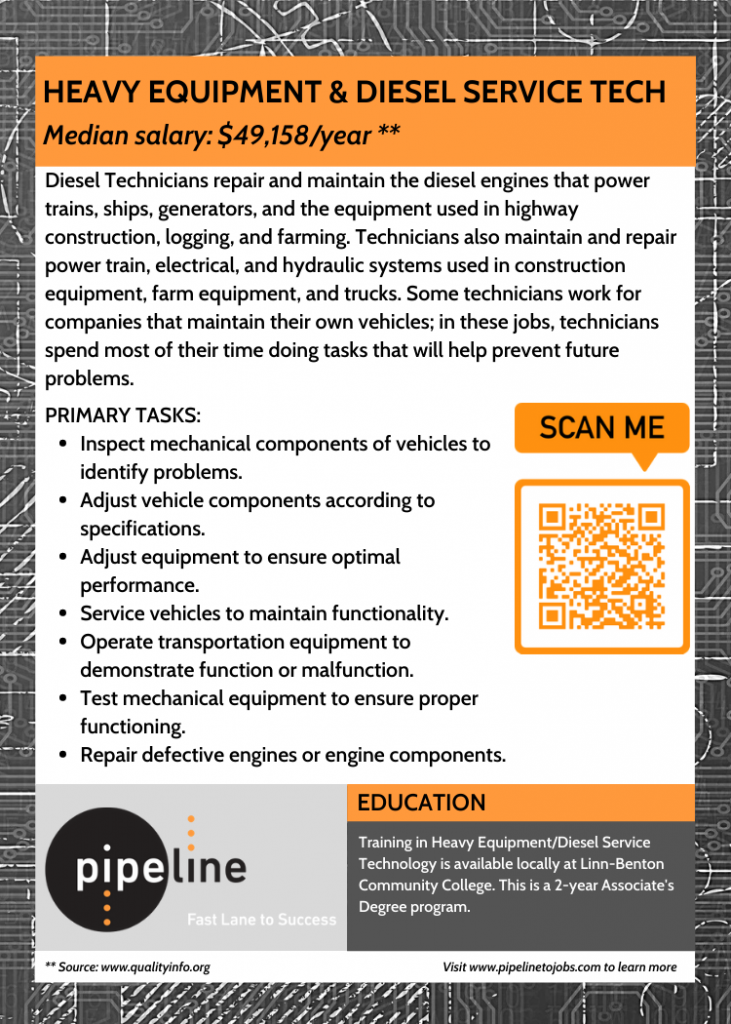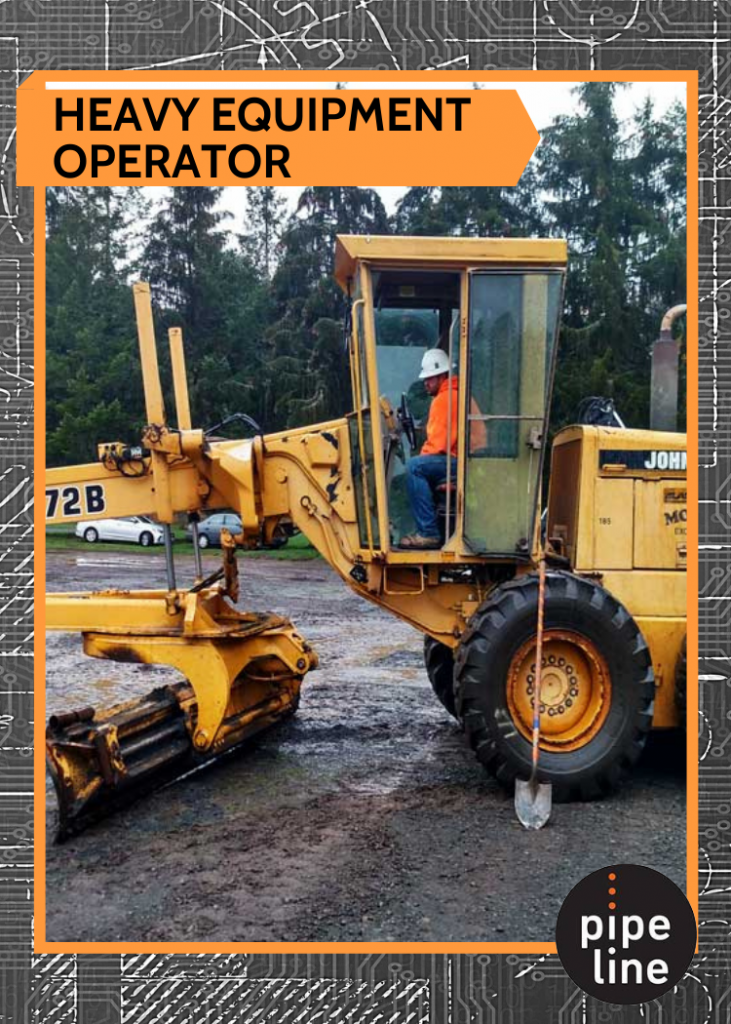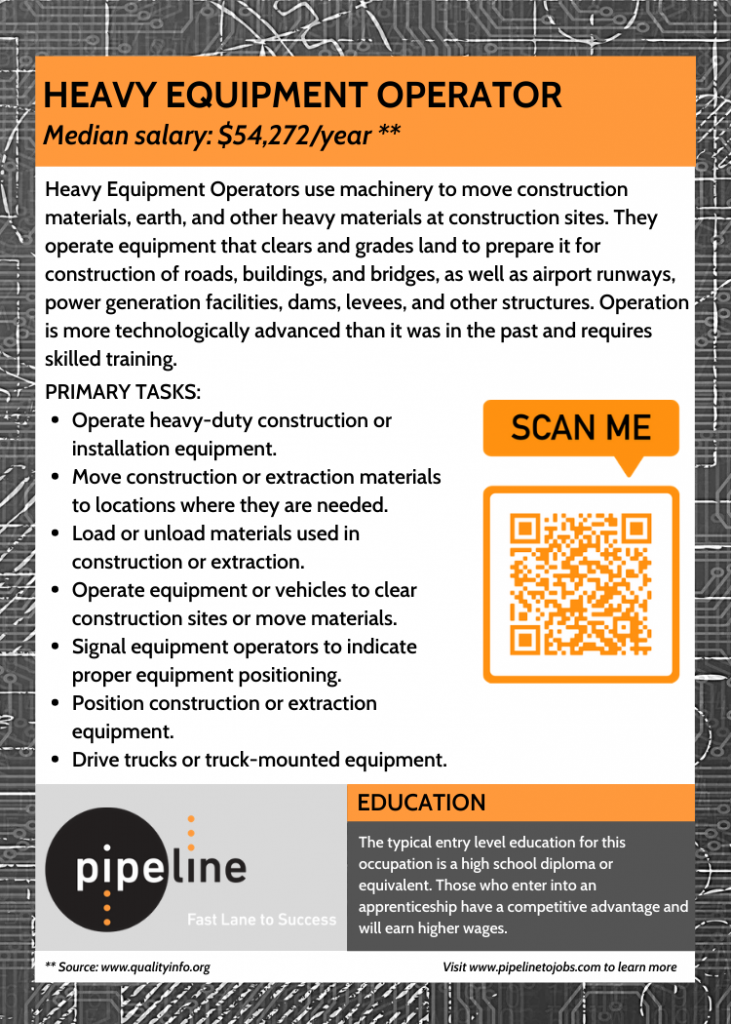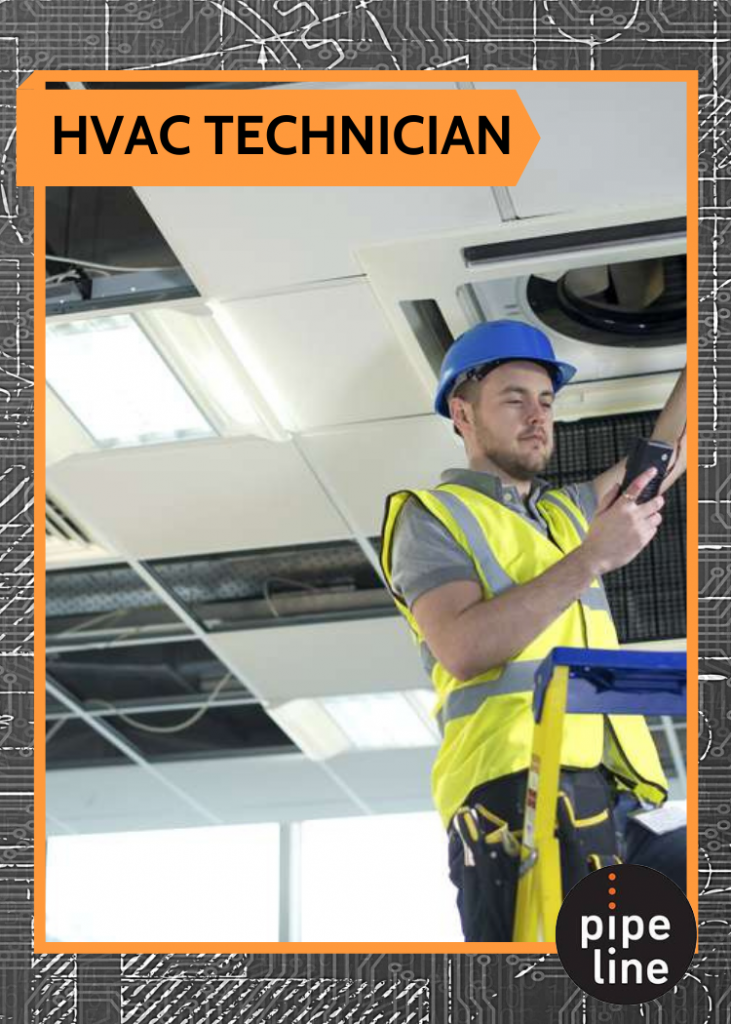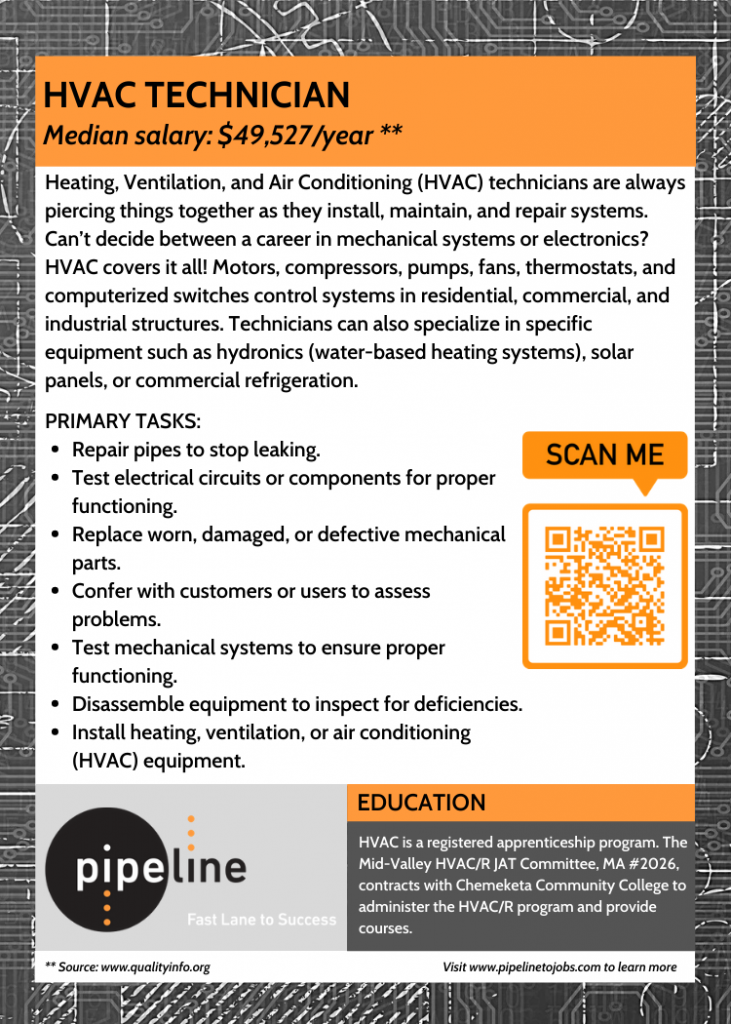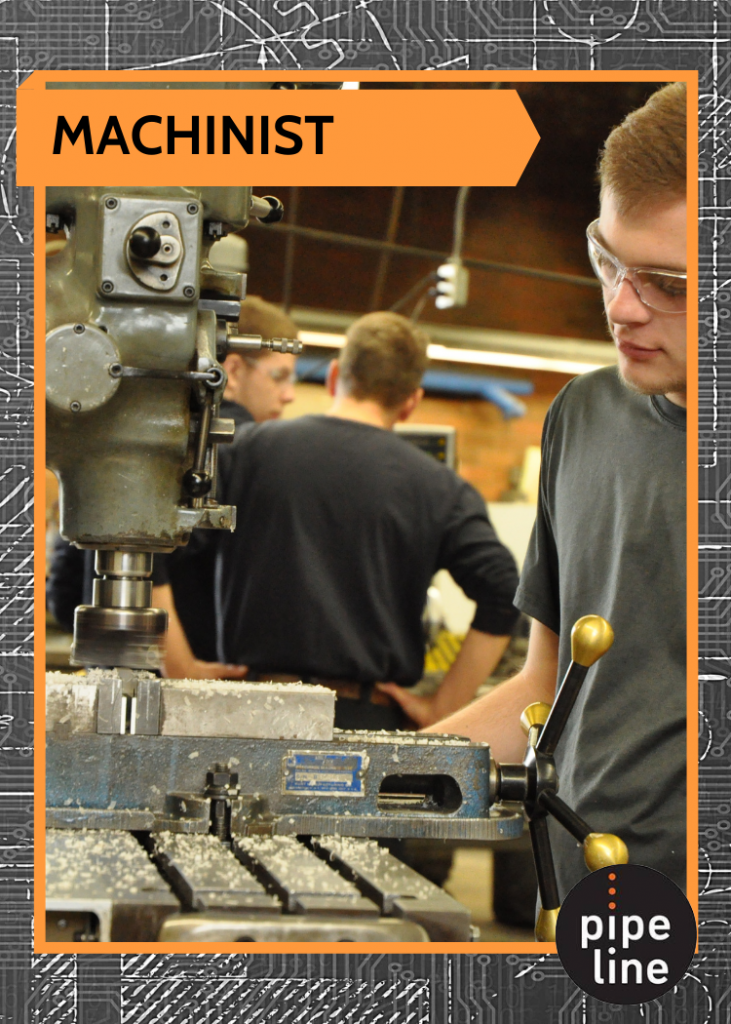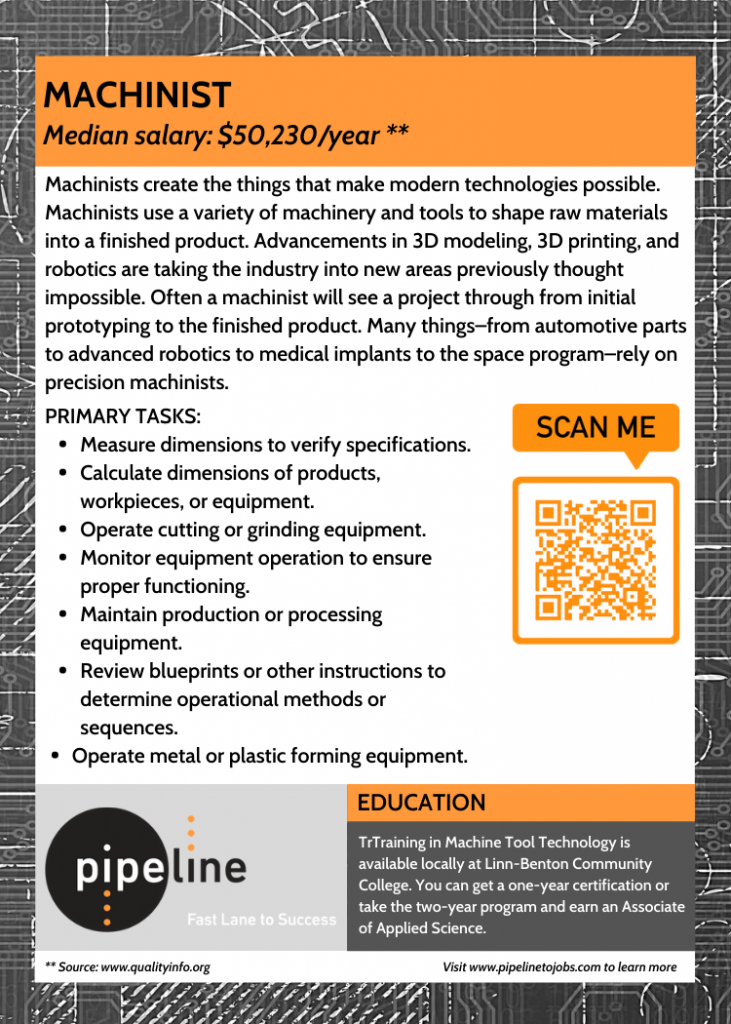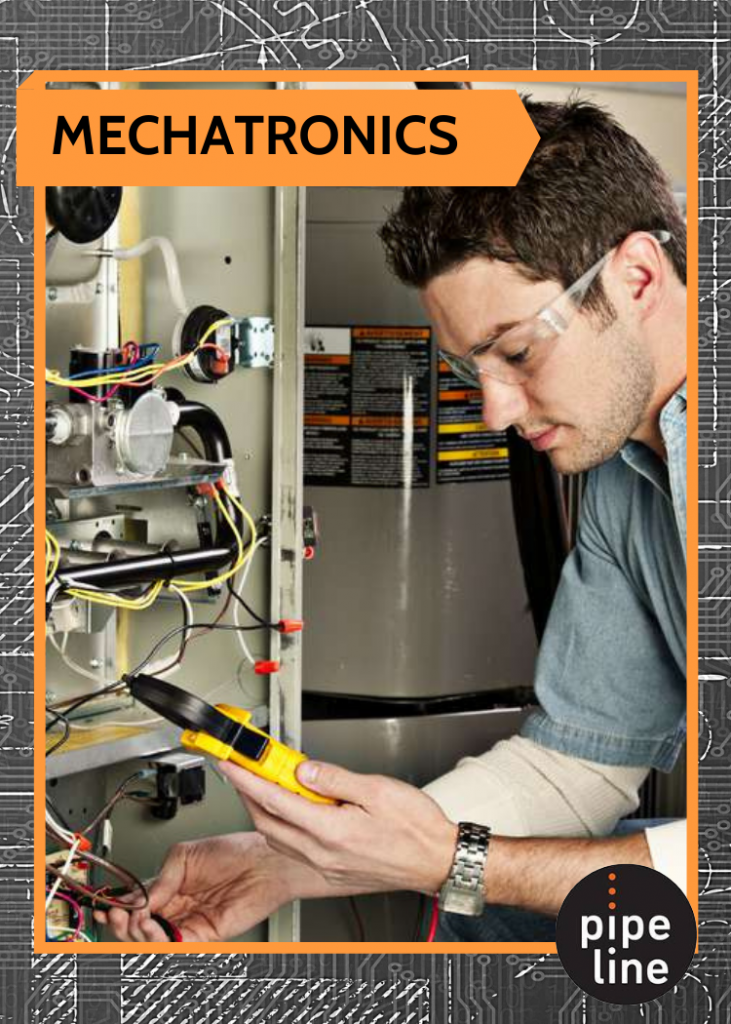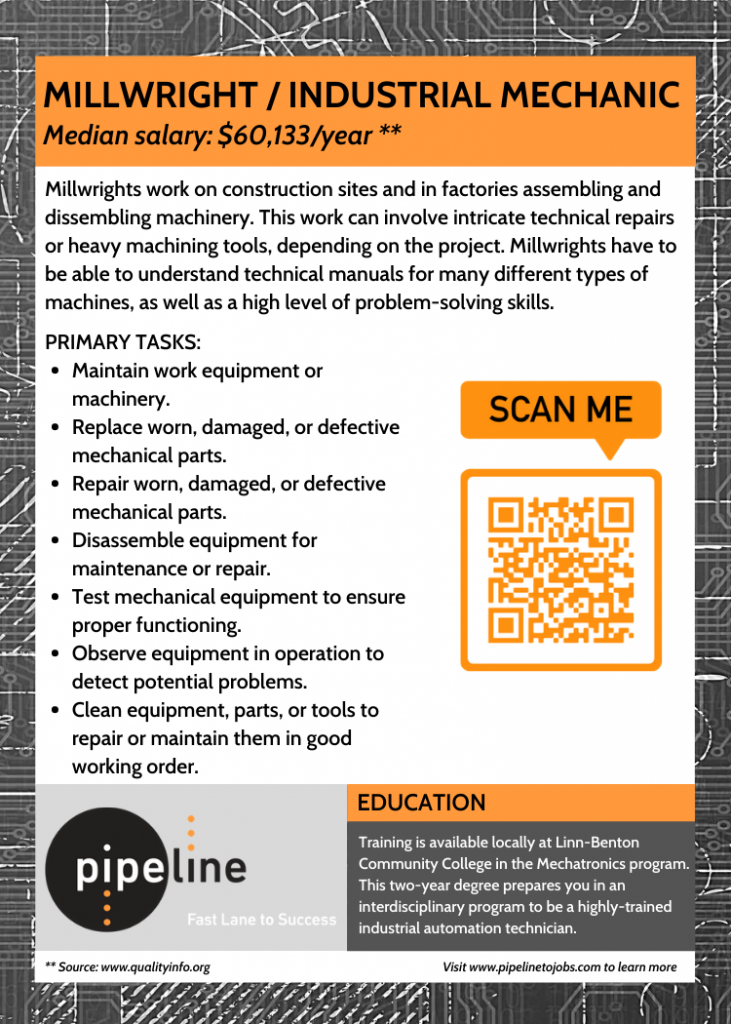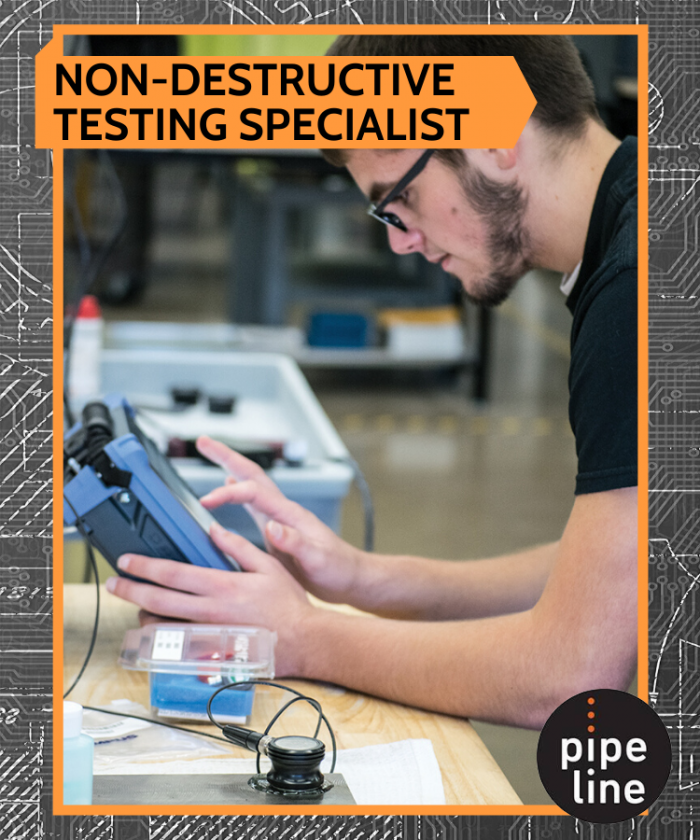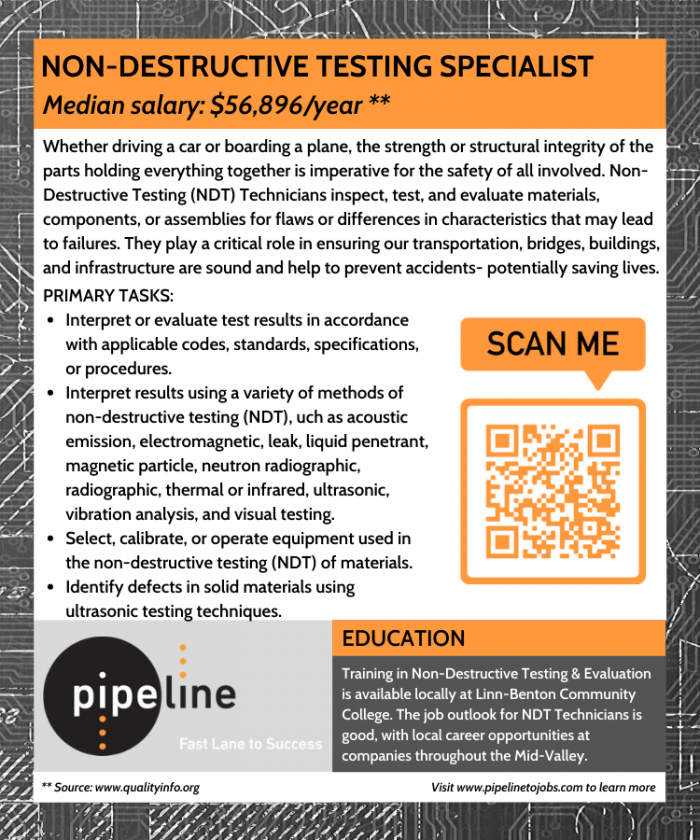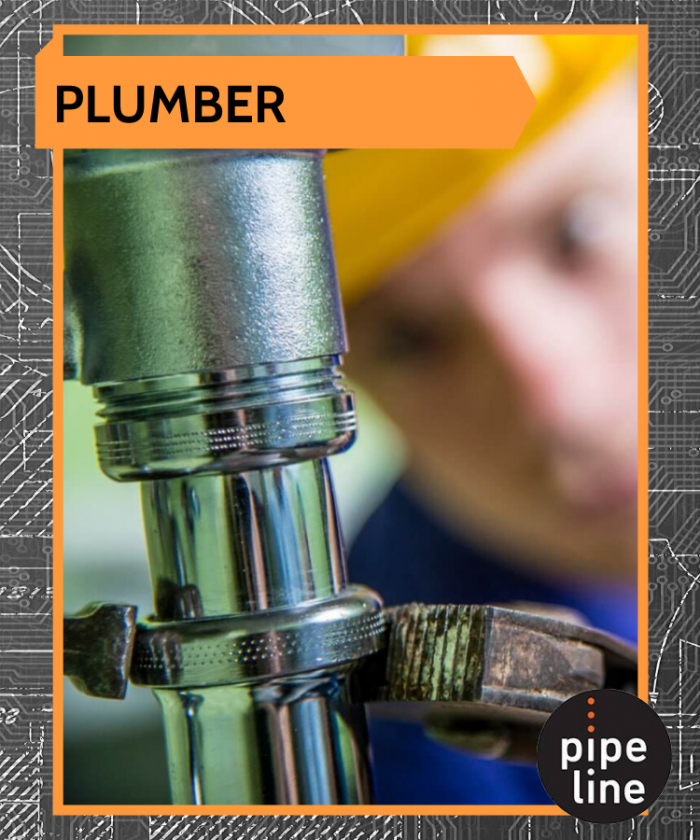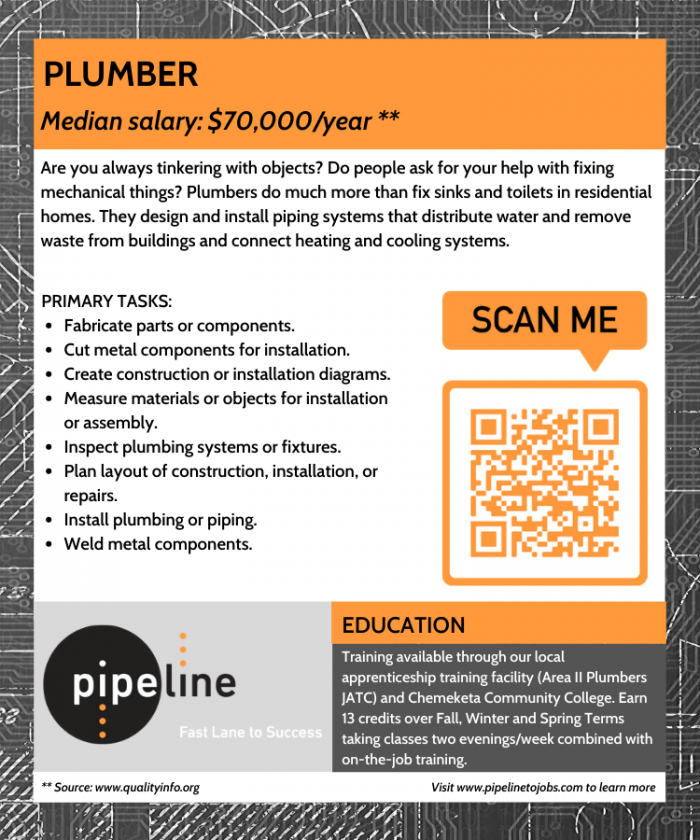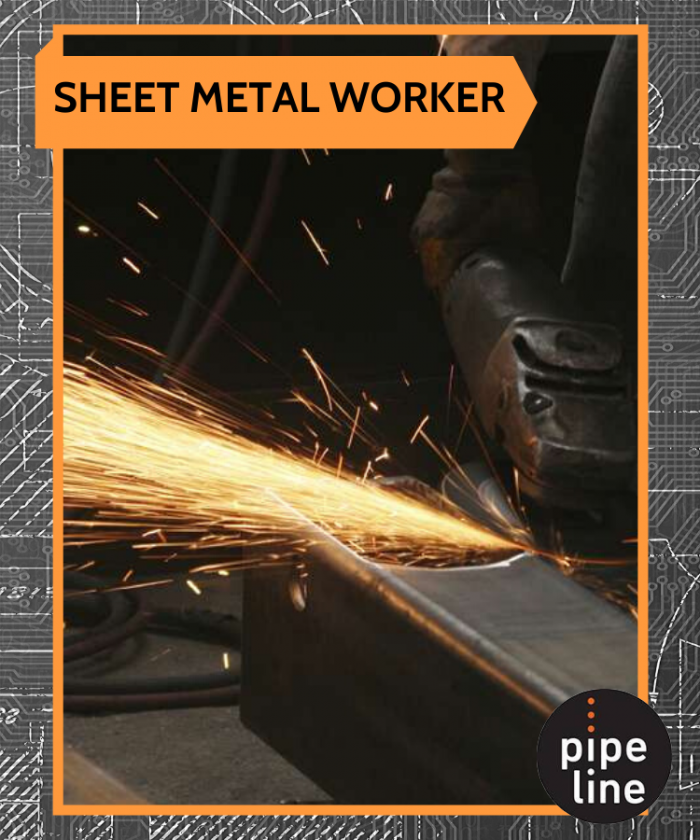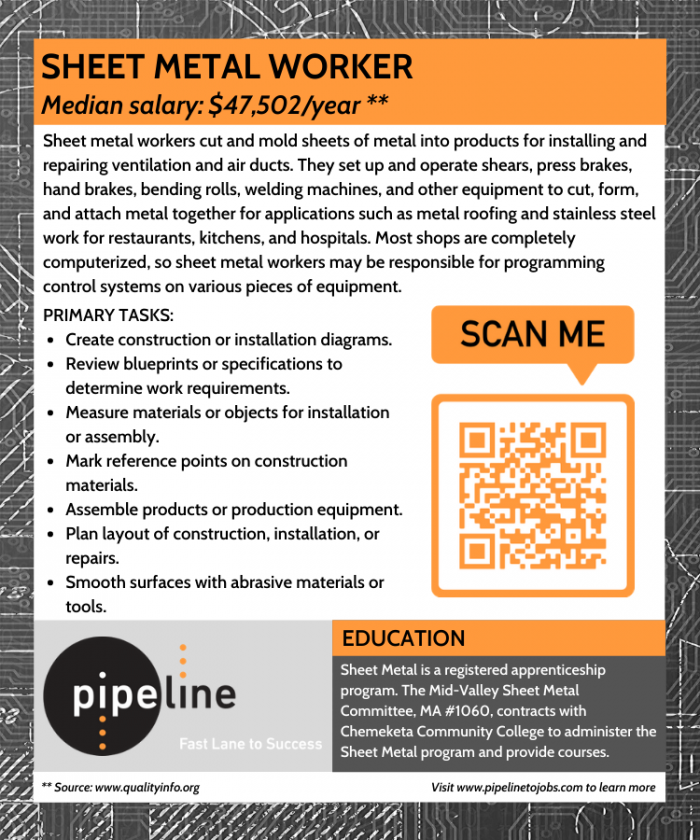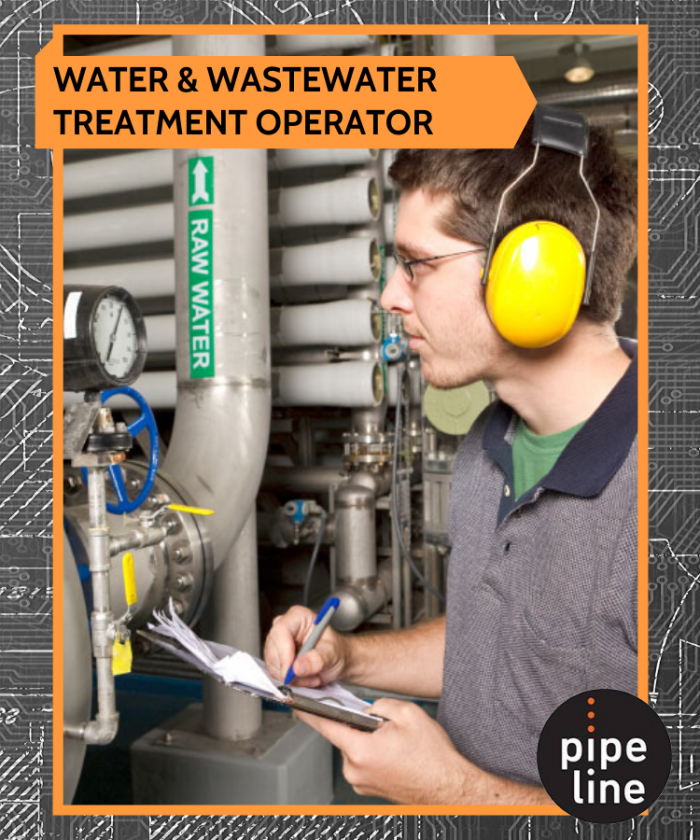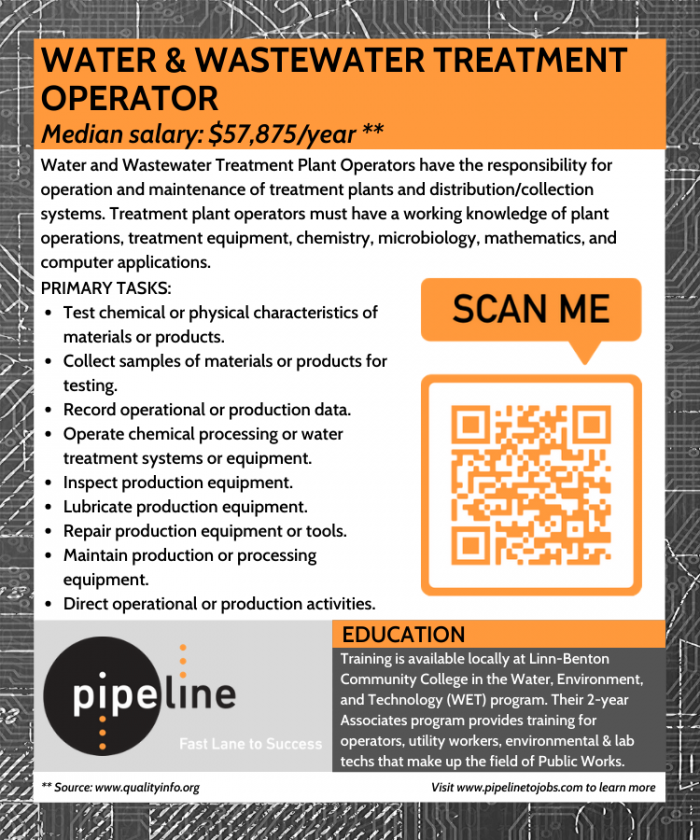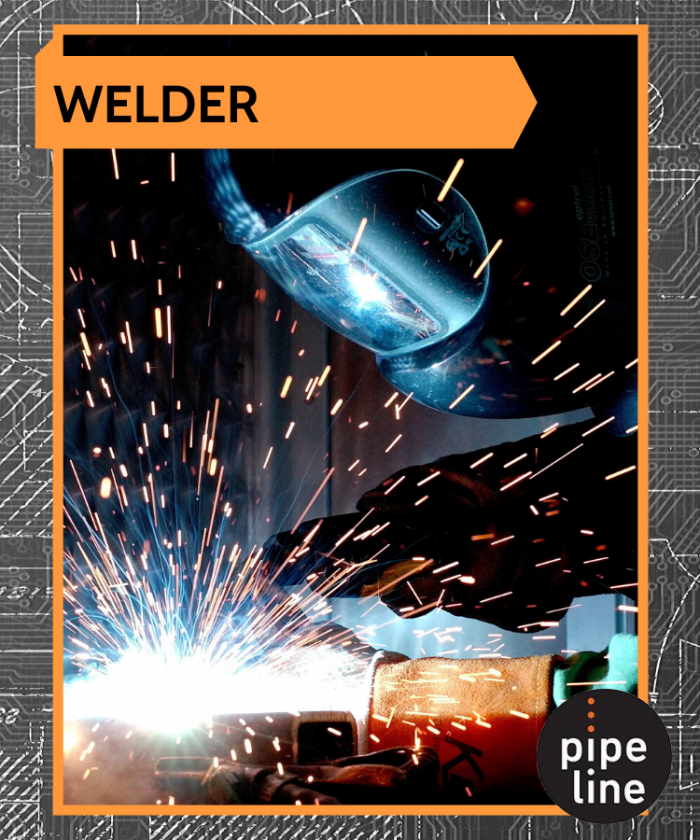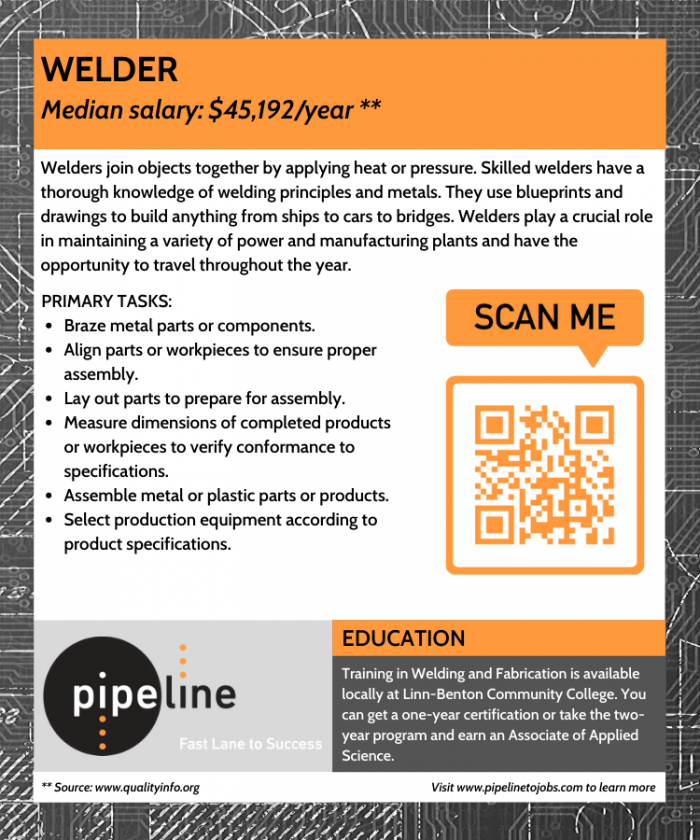Pipeline Trading Cards
Check out our new set of 14 trading cards! These are a great way to introduce students to careers in advanced manufacturing and the trades.
If you enjoy challenges, cars, and like to work with your hands, Automotive Technology can be a rewarding career for you. Automotive Service Technicians are employed by auto dealerships, repair shops, auto and home supply stores, and gas and service stations.
Computer Aided Designers/Drafters use software to create plans for everything from cars to skyscrapers. Because of the limitless benefits of their profession, CAD Designers may find work in many exciting fields including construction and engineering. They use specialized computer software to generate drawings, blueprints, plans, and other design documents for use across a wide variety of fields (mechanical design, architecture, construction, engineering, etc.).
Do you like building, traveling and being outdoors? Why not consider a career that is fun and offers financial freedom? Carpenters measure, cut and shape wood, plastic, fiberglass and drywall. Commercial and industrial carpenters construct, erect, install and repair structures and fixtures. They are involved in many different kinds of construction, from buildings to highways and bridges to power plants.
Electricians install and maintain all of the electrical and power systems for our homes, businesses, and factories. They install and maintain the wiring and control equipment through which electricity flows. They also install and maintain electrical equipment and machines in factories and a wide range of other businesses. Electricians in large factories usually do maintenance work that is more complex.
Diesel Technicians repair and maintain the diesel engines that power trains, ships, generators, and the equipment used in highway construction, logging, and farming. Technicians also maintain and repair power train, electrical, and hydraulic systems used in construction equipment, farm equipment, and trucks. Some technicians work for companies that maintain their own vehicles; in these jobs, technicians spend most of their time doing tasks that will help prevent future problems.
Heavy Equipment Operators use machinery to move construction materials, earth, and other heavy materials at construction sites. They operate equipment that clears and grades land to prepare it for construction of roads, buildings, and bridges, as well as airport runways, power generation facilities, dams, levees, and other structures. Operation is more technologically advanced than it was in the past and requires skilled training.
Heating, Ventilation, and Air Conditioning (HVAC) technicians are always piercing things together as they install, maintain, and repair systems. Can’t decide between a career in mechanical systems or electronics? HVAC covers it all! Motors, compressors, pumps, fans, thermostats, and computerized switches control systems in residential, commercial, and industrial structures. Technicians can also specialize in specific equipment such as hydronics (water-based heating systems), solar panels, or commercial refrigeration.
Machinists create the things that make modern technologies possible. Machinists use a variety of machinery and tools to shape raw materials into a finished product. Advancements in 3D modeling, 3D printing, and robotics are taking the industry into new areas previously thought impossible. Often a machinist will see a project through from initial prototyping to the finished product. Many things–from automotive parts to advanced robotics to medical implants to the space program–rely on precision machinists.
Millwrights work on construction sites and in factories assembling and dissembling machinery. This work can involve intricate technical repairs or heavy machining tools, depending on the project. Millwrights have to be able to understand technical manuals for many different types of machines, as well as a high level of problem-solving skills.
Whether driving a car or boarding a plane, the strength or structural integrity of the parts holding everything together is imperative for the safety of all involved. Non-Destructive Testing (NDT) Technicians inspect, test, and evaluate materials, components, or assemblies for flaws or differences in characteristics that may lead to failures. They play a critical role in ensuring our transportation, bridges, buildings, and infrastructure are sound and help to prevent accidents- potentially saving lives.
Are you always tinkering with objects? Do people ask for your help with fixing mechanical things? Plumbers do much more than fix sinks and toilets in residential homes. They design and install piping systems that distribute water and remove waste from buildings and connect heating and cooling systems.
Sheet metal workers cut and mold sheets of metal into products for installing and repairing ventilation and air ducts. They set up and operate shears, press brakes, hand brakes, bending rolls, welding machines, and other equipment to cut, form, and attach metal together for applications such as metal roofing and stainless steel work for restaurants, kitchens, and hospitals. Most shops are completely computerized, so sheet metal workers may be responsible for programming control systems on various pieces of equipment.
Water and Wastewater Treatment Plant Operators have the responsibility for operation and maintenance of treatment plants and distribution/collection systems. Treatment plant operators must have a working knowledge of plant operations, treatment equipment, chemistry, microbiology, mathematics, and computer applications.
Welders join objects together by applying heat or pressure. Skilled welders have a thorough knowledge of welding principles and metals. They use blueprints and drawings to build anything from ships to cars to bridges. Welders play a crucial role in maintaining a variety of power and manufacturing plants and have the opportunity to travel throughout the year.

